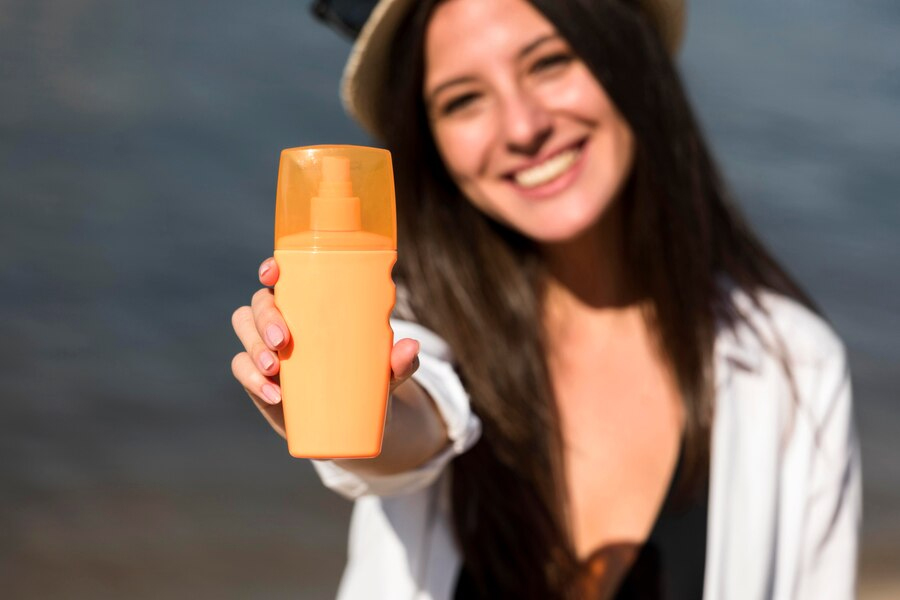
The extreme heat outdoors has made it impossible for us to go outside or indulge in outdoor activities. Experts warn against stepping outside during peak ultraviolet (UV) radiation hours, typically between 10 a.m. and 4 p.m., as during this time, the sun’s effects are the most harmful. In addition, dermatologists recommend applying sunscreen with Sun Protection Factor (SPF) 30, as it not only protects against sun damage but also reduces the risk of squamous cell and melanoma skin cancers, according to a study published in the Canadian Medical Association Journal.
Table of Content:-
However, while creams and lotions with SPF have existed for a long time, have you ever heard of oral sunscreens or sunscreen pills? In an interaction with the OnlyMyHealth team, Dr Geetika Srivastava, Dermatologist and Founder of Influennz Skin and Hair Clinic, Delhi, sheds light on its use and safety and shares how it is different from topical sunscreens.
Also Read: How To Pick The Right Sunscreen For Your Skin: The Ingredients To Look For And Avoid
What Are Oral Sunscreens?

Dr Srivastava describes oral sunscreens as dietary supplements packed with antioxidants like vitamins C, E, and K, designed to enhance the body's natural defence against UV radiation.
She says, "These antioxidants play a crucial role in neutralising free radicals, which are highly reactive molecules that can cause significant damage to our skin cells. By neutralising free radicals, antioxidants help to prevent and repair the damage caused by oxidative stress, which is particularly relevant in the context of UV-induced skin damage."
How Do Oral Sunscreens Work?

According to Dr Srivastava, UV exposure generates reactive oxygen species (ROS) like nitric oxide, hydrogen peroxide, and nascent oxygen that damage cellular components, including DNA, proteins, and lipids.
“The damage induced by ROS triggers a cascade of events, activating pathways like the p53 pathway, which leads to cell cycle arrest, DNA repair, or apoptosis (programmed cell death), ultimately contributing to the ageing process,” she explains, adding that oral sunscreen nullifies the effect of ROS or free radicals in the body, thereby detoxifying the body.
Therefore, some of the benefits of using oral sunscreens include:
- It helps with UV-induced DNA damage.
- Detoxifies the entire body, not just the skin.
- Delays ageing due to the antioxidant effect
However, there are a few disadvantages to consider as well:
- Not effective sun protection as a stand-alone therapy
- Additionally, more extensive research and data are needed to fully substantiate their efficacy in protecting against UV radiation.
Also Read: Sunburn During Summer: How To Naturally Take Care Of It?
Oral Or Topical Sunscreens: Which Is Better?

“It is important to note that oral sunscreens should not be relied upon as the sole method of sun protection,” advises Dr Srivastava, adding that topical sunscreens remain the cornerstone of sun protection.
Hence, it is crucial to keep in mind that oral sunscreens are most effective when used in conjunction with traditional sunscreens and other photoprotection measures.
Here are a few things to consider while deciding whether or not to use oral sunscreens:
- Oral sunscreens are not a replacement for topical sunscreens but an adjunct.
- They offer internal protection that can enhance the efficacy of external sun protection methods. For those seeking comprehensive photoprotection, combining oral antioxidants with traditional sunscreens provides a synergistic approach to defending against UV damage.
- Oral sunscreens combat photoageing by neutralising free radicals.
- They prevent photocarcinogenesis by preventing DNA damage that could lead to malignant transformations.
Oral sunscreen is a supplement and not a replacement for topical sunscreens that have been traditionally used for sun protection. However, they are said to be effective in reducing free radical damage, preventing photoageing, and also reducing the risk of skin cancer.
How we keep this article up to date:
We work with experts and keep a close eye on the latest in health and wellness. Whenever there is a new research or helpful information, we update our articles with accurate and useful advice.
Current Version